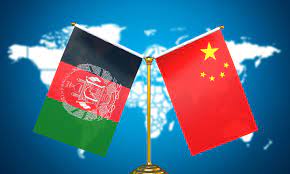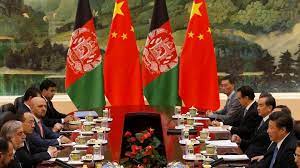It’s easy to understand China’s interest in Afghanistan

Islamabad: China’s deep interest in Afghanistan has drawn a great deal of international attention. Chinese foreign policy is rooted in historical context and in classic Chinese literature, the ‘journey to the west’ encapsulates the two-way flow of art, ideas and materials. Even Buddhism reached China over the mountainous terrain from regions now in Nepal, India, Pakistan and Afghanistan.
It seems the Chinese world-view is not rooted only in material values or political interests but in domains deeper and more substantive. It is therefore no wonder that the Chinese interest in Afghanistan is a continuum that has achieved greater validity over the years.
Modern China is now well placed to chart its world view as a distinctive one in its own right, a new political narrative that encapsulates history and romance with realism and economic ambition. The primary element is spreading opportunities of development in all directions. The Belt and Road Initiative (BRI) seeks to achieve this by building corridors of connectivity on a voluntary and mutually acceptable basis. The Euro-Asia land bridge project has seen the development of rail connectivity between Asia and Europe.
By investing in Afghanistan’s infrastructure, China aims to boost connectivity, expand trade routes, and consolidate its regional influence.
Afghanistan’s location as a potential gateway between Central Asia and South Asia makes it a crucial link in this grand infrastructure network. China sees Afghanistan as an important node in the BRI, with the potential to facilitate trade and economic integration within the region. By investing in Afghanistan’s infrastructure, China aims to boost connectivity, expand trade routes, and consolidate its regional influence.

Afghanistan is China’s contiguous neighbor– one where peace and stability has remained disturbed for over 40 years. The instability has led to an ingress in Afghanistan of various terror organizations including the ETIM (Eastern Turkestan Islamic Movement) which has sought to disrupt order in Xinjiang. By actively engaging with Afghanistan, China aims to contribute to counterterrorism efforts, foster intelligence-sharing mechanisms, and prevent the resurgence of terrorism in the region.
Afghanistan’s geographical location presents immense economic opportunities with vast reserves of untapped natural resources, including minerals, oil and gas. China, as the world’s largest consumer of resources, seeks to capitalize on Afghanistan’s mineral wealth to meet its own growing energy demands and enhance its industrial capabilities. Chinese companies have invested in infrastructure projects, mining ventures, and oil exploration in Afghanistan, envisioning long-term economic benefits.
In Afghanistan’s mining sector, minerals such as copper, iron, gold, lithium and rare materials are available in substantial quantities. Also, gemstones such as sapphires, emeralds and rubies are mined. In fact, Chinese clean mineral extractive technologies could prove transformative in changing Afghanistan’s economic picture.
Afghanistan is also an important component of Chinese regional diplomacy. Beijing has solid relations with Pakistan and with Iran, and has been instrumental in bringing about a Saudi-Iran rapprochement. China is an active player in the Middle East, especially the Gulf region. Its increasing presence in Afghanistan allows it to play a more significant role in regional and international affairs.
By engaging with Afghanistan, China expands its influence in Central Asia. Its involvement provides an opportunity to project itself as a responsible global player, one capable of contributing to conflict resolution and peace-building efforts on a huge scale.
China, Afghanistan and Pakistan’s Trilateral Foreign Minister meetings are held regularly. They have been useful in coordinating strategy for common development including the extension of the China Pakistan Economic Corridor (CPEC) to Afghanistan.
Afghanistan is an important hub for Central Asia-South Asia connectivity, which remains a priority project for China. It is hoped that as Afghanistan becomes more peaceful and stable, China-Afghanistan relations will continue to evolve to the advantage of the region as a whole.





